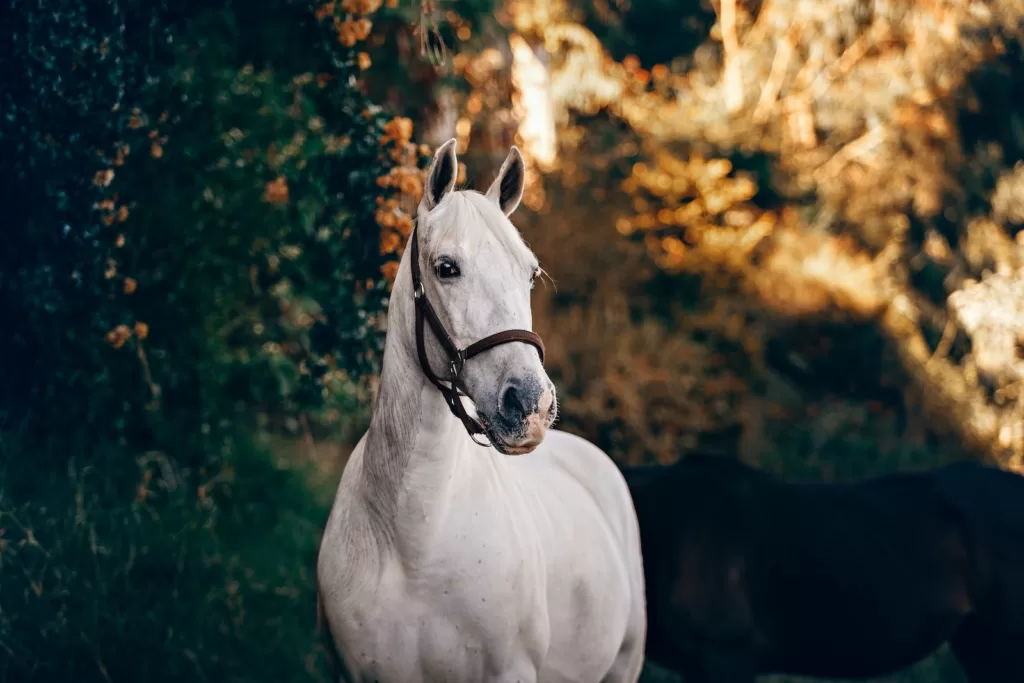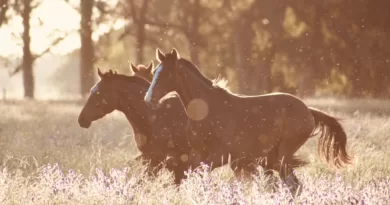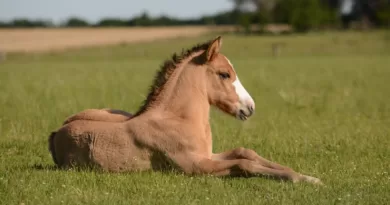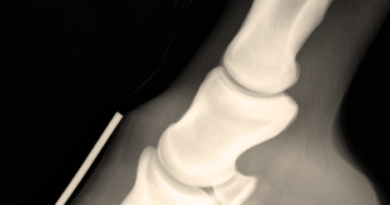Racehorse Lifespan: A Comprehensive Guide
Introduction
Racehorses are magnificent creatures, renowned for their speed, agility, and strength. However, like all animals, they too face the reality of a limited lifespan. In this comprehensive guide, we will delve into the myriad factors that influence the lifespan of a racehorse and provide valuable insights into their care, health, and post-racing life.
Factors Affecting Racehorse Lifespan
Racehorse lifespan is influenced by a variety of factors:
Genetics
A horse’s genetics play a significant role in determining its lifespan. Some bloodlines are known for their longevity, while others may have predispositions to certain health issues.
Care and Nutrition
Proper care and nutrition are vital to a racehorse’s wellbeing. High-quality feed, regular veterinary check-ups, and access to clean water are essential. The right balance of nutrients, including proteins, vitamins, and minerals, ensures their overall health.
Training and Exercise
Racehorses are subjected to rigorous training and exercise routines. Overtraining can lead to injuries and a shortened career. Striking the right balance is crucial.
Racing Injuries
Injuries are a common part of a racehorse’s life. Understanding how to prevent and treat them is essential for prolonging a horse’s career and overall lifespan.
Retirement and Second Careers
When a racehorse retires, a well-thought-out plan is necessary for their post-racing life. Many racehorses transition into second careers, such as therapy horses or showjumpers.
Nutrition and Health
Maintaining a racehorse’s health and nutrition is key to extending their lifespan. Here are some important considerations:
Balanced Diet
A balanced diet is fundamental. Moreover, it should include high-quality hay, grains, and supplements. Horses have specific dietary needs; consequently, consulting a veterinarian or equine nutritionist is advisable.
Hydration
Adequate water intake is essential for a racehorse’s health. Ensure clean, fresh water is always available.
Regular Vet Check-ups
Regular veterinary check-ups help identify and address health issues early. Vaccinations and dental care are also vital.
Supplements
Supplements, like joint supplements or vitamins, can support a racehorse’s health. However, consult a professional to determine the right supplements for your horse.
Training and Exercise
Racehorses require intensive training and exercise, but it should be managed carefully:
Balanced Workouts
Balanced workouts prevent overexertion. Varying exercise routines, including walking and trotting, is essential.
Rest Days
Allowing your horse sufficient rest is crucial. It helps prevent injuries and supports their overall wellbeing.
Proper Warm-up and Cool-down
Before and after workouts, ensure your horse is properly warmed up and cooled down. This reduces the risk of muscle strain and injuries.
Racing Injuries
Injuries are a common concern in the world of horse racing. Knowing how to prevent and manage them is essential:
Common Injuries
Common racehorse injuries include not only tendon and ligament strains but also fractures and respiratory issues. In such cases, immediate medical attention is necessary to ensure a swift and effective recovery.
Rehabilitation
Rehabilitation is often needed after an injury. It includes controlled exercise and monitoring for a safe return to racing.
Preventive Measures
Proactive measures, like maintaining proper footing in training areas, can reduce the risk of injuries.
Retirement and Second Careers
Retirement planning is crucial for racehorses:
Transition Plans
Plan your horse’s transition from racing to retirement carefully. Explore second career options or retirement on a farm.
Rehabilitation Centers
Some retirement facilities offer rehabilitation services to help horses recover from injuries sustained during their racing careers.
Therapy and Recreation
Therapeutic programs and recreational activities can help retired racehorses adapt to their new lives.
Frequently Asked Questions
1. What is the average lifespan of a racehorse?
The average lifespan of a racehorse is around 25 to 30 years. However, this can vary based on individual factors.
2. How can I ensure my racehorse stays healthy?
To keep your racehorse healthy, provide a balanced diet, regular vet check-ups, and appropriate exercise routines.
3. What are common injuries in racehorses?
Common injuries in racehorses include tendon and ligament strains, fractures, and respiratory issues.
4. What happens to racehorses after they retire?
Many racehorses transition into second careers, such as therapy horses or showjumpers, while others enjoy retirement on farms.
Health and Well-being
As racehorses are elite athletes, their health is of utmost importance. Consequently, ensuring their well-being involves several critical aspects:
Dental Care
Regular dental check-ups and care are essential for racehorses. Dental issues can impact their ability to chew and digest food properly.
Parasite Control
Proper parasite control is vital. Furthermore, horses are susceptible to both internal and external parasites; hence, regular deworming is essential.
Hoof Care
Maintaining healthy hooves is crucial. Furthermore, regular farrier visits ensure that the horse’s hooves are balanced and trimmed.
Mental Well-being
A racehorse’s mental health is just as crucial as its physical well-being. Moreover, providing a stimulating environment and regular social interaction is highly beneficial.
Safety and Injury Prevention
Preventing injuries is a top priority for racehorse owners and trainers:
Track Conditions
Racehorse tracks should be well-maintained; consequently, this ensures consistent and safe footing. Furthermore, neglecting regular track conditions can inevitably lead to accidents.
Protective Gear
Use protective gear, such as leg wraps and helmets, during workouts and races. This can reduce the severity of injuries.
Expert Training
Ensure that racehorses are trained by experienced professionals who understand the risks and safety measures.
Monitoring and Records
Keeping detailed records of a racehorse’s health and training is crucial:
Medical Records
Maintain up-to-date medical records, including vaccinations, medications, and treatments.
Training Logs
Record the type and duration of training sessions; as a result, this helps in monitoring progress and preventing overexertion.
Health Trends
Look for trends in your horse’s health. Identifying early signs of illness or injury is key to prompt treatment.
Retirement and Aftercare
Planning for a racehorse’s retirement should begin well in advance:
Financial Planning
Consider the financial aspect of retirement. Costs may include board and healthcare for the retired horse.
Second Career Options
Explore second career options for your horse. Remarkably, many racehorses smoothly transition into highly successful careers in various equine disciplines.
Retirement Facilities
Research retirement facilities that specialize in the care of retired racehorses. Furthermore, these facilities often offer tailored care and rehabilitation services.
See Also: How long do horses live? Amazing Facts About Horses’ Life
Conclusion
Racehorse lifespan is influenced not only by genetics but also by factors such as care, nutrition, and the proper management of training and injuries. By prioritizing the well-being of these incredible animals both during their racing careers and beyond, we can ensure that they enjoy long, healthy lives.
Enjoyed this article? You May Also Like:
- Learn in 5 minutes about Cryotherapy for Horses
- Penicillin in Horses; Impeccable Guide in 10 minutes
- Excede Antibiotic For Horses, Fantastic Facts in 5 minutes
- The Science of Oxytocin in Horses: How This Hormone Influences Equine Behavior
- Can Horses Swim? Everything You Need To Know About Horse Swimming






